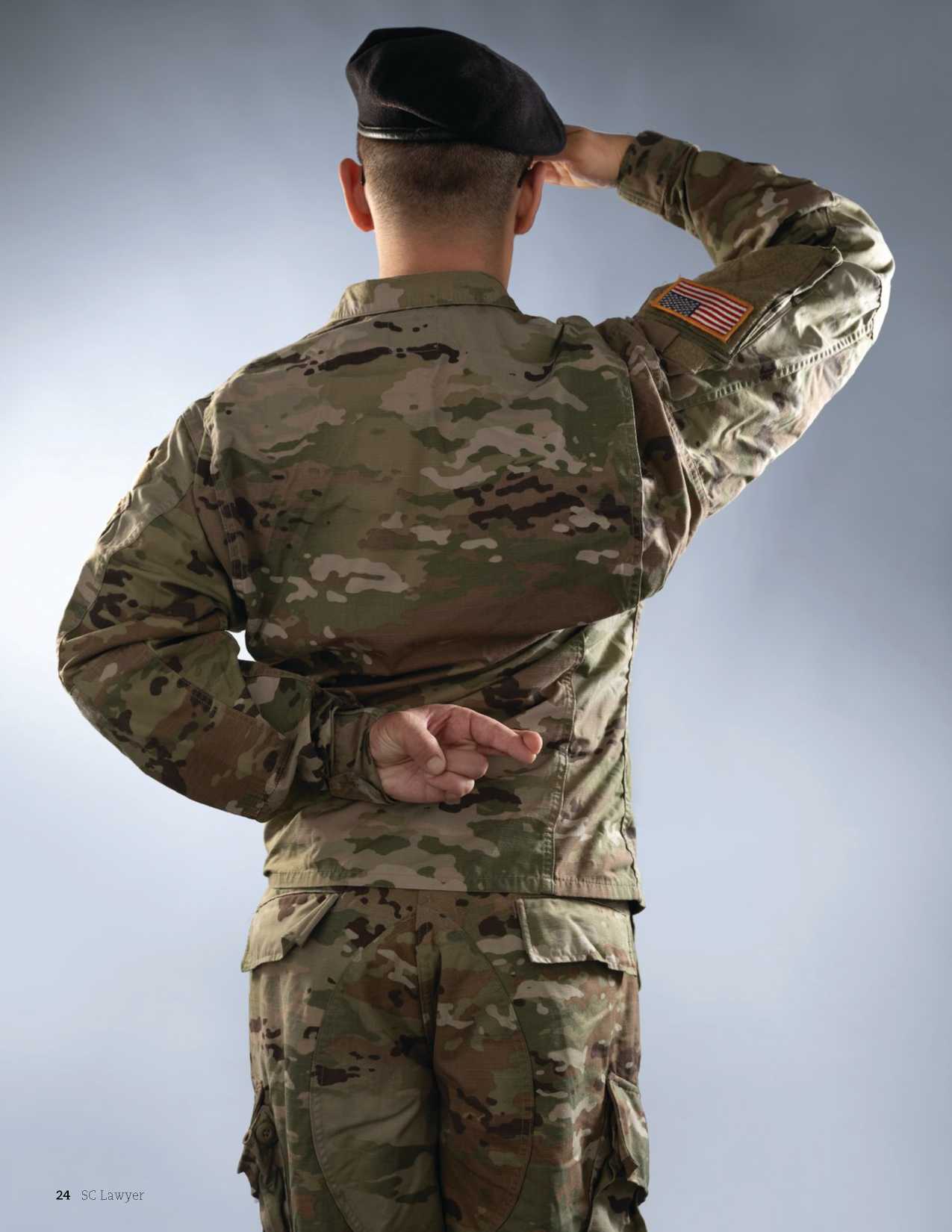Stolen Valor and Free Speech
| Publication year | 2023 |
| Pages | 24 |

Stolen Valor and Free Speech
By Barry Bernstein
"any who are not entitled to the honors, have the insolence to assume the badges of them, they shall be severely punished."
George Washington
In just a few years, the term "stolen valor" has worked its way into legal terminology. Criminal penalties against wearing military uniforms and decorations have been valid for over a century, but the issue of misrepresenting military service is a modern legal problem. The issue was highlighted with several notorious stories that led to the promulgation of federal and state laws criminalizing the misrepresentation of military service.
High-profile stories of false claims of military service in the 1990s raised this issue. In 1991, the Wall Street Journal called out Senator Tom Harkin for false claims of having flown combat missions in Vietnam. Incumbent Congressman Wes Cooley claimed to have served in the Special Forces in Korea, only to withdraw from reelection and later plead guilty of lying in an official document. In 1997, Ambassador Larry Lawrence was eulogized by President Clinton at Arlington National Cemetery but was disinterred when revelations of his lying about military service arose. Actor Brian Dennehy claimed being wounded in Vietnam, but publicly admitted his fabrication in 1998.
"Stolen Valor: How the Vietnam Generation Was Robbed of its Heroes and its History" is a 1998 book that addressed misperceptions of the Vietnam War.[1] The third part of the book addresses military imposters, veterans exaggerating their service and the media's failure to validate the authenticity of those cited in their stories. B.G. Burkett's self-published book won the Colby Award, and with fortuitous timing, its short title "Stolen Valor" has been appropriated into modern culture.
"Stolen Valor" exposed Frank Dux who claimed to have been awarded the Medal of Honor and was portrayed in the 1988 movie "Bloodsport" by Jean Claude Van Damme. Dux's memoir "The Secret Man: An American Warrior's Uncensored Story" was published just two years before "Stolen Valor."[2]Burkett proved Dux served in a reservist capacity after the Vietnam War ended with no overseas duty and included a photo of Dux in uniform with unearned medals.
"Stolen Valor" discussed the media's gullibility to present stories without substantiating military service. For example, in 1994, CBS's "60 Minutes" dramatically highlighted Joe Yandle's traumatic return from Vietnam with "a Bronze Star for valor. Two purple hearts and something else, too - a heroin habit."[3] Yandle claimed his combat experiences led him to drugs and a conviction for murder in a liquor store robbery. In 1995, he won commutation despite opposition from prosecutors and victims. Following the release of "Stolen Valor," Yandle admitted he never set foot in Vietnam or witnessed combat, and his parole was revoked in 1998.
"Stolen Valor" influenced others to continue revealing military imposters. Pulitzer Prize winner Joseph John Ellis embellished his credentials by claiming to have served on General Westmoreland's Vietnam wartime staff, when in fact he spent his entire military service teaching history at West Point. Joseph Cafasso served as a Fox News expert analyst with credentials as a retired Special Forces lieutenant colonel, Vietnam veteran and Silver Star recipient. He was fired by the network when the New York Times revealed Cafasso was discharged as a private having failed basic training with 44 total days of military service.
Issues of stolen valor entered presidential politics in 2000 and 2004. The major party nominees in each election had military records to substantiate their credentials, but false allegations questioning the validity of military records decades later. False claims of stolen valor to subvert political campaigns earned its own nickname of "swift boating." By the end of 2004, Congress was ready to act.
FEDERAL LAW
Background. For many years protections of the military stood uncontested as to First Amendment rights. The 1960s brought protest and legal challenges to long-standing statutes that protected the military. Over the course of the Vietnam War, the United States Supreme Court began to evolve away from the absolute protection enjoyed in World War II and the early Cold War. At the onset of anti-war demonstrations, in United States v....
To continue reading
Request your trial
